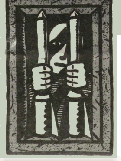By Yossi Melman
Haaretz
23/03/2005
Yehiel Horev did it again. The man in charge of field security for the defense establishment proved once again that his impulses overcome all logic.
Horev is the official responsible - more than anyone else - for the decision to charge Mordechai Vanunu with violating the constraints applied to him on his release from prison. Vanunu did indeed violate some of the limits. He spoke with foreigners - giving interviews dozens of times to foreign media - without getting Horev's permission. And he is charged with an attempt to leave Israel's borders, because he tried to attend a Christmas mass in Bethlehem. The maximum punishment for all these violations is another three years. If a court convicts him and imposes a sentence, he will go back to where he spent 18 years of his life, after he was convicted of espionage and treason for giving the Sunday Times information about what he says he knew about nuclear weapons production at Dimona.
Horev is a phenomenon of nature in the Israeli government. For more than 20 years he has been the supreme authority regarding security for the defense establishment. It is one of the most sensitive positions in the state, and for not very clear reasons he has enjoyed the support of all the defense ministers of the past 20 years. A few years ago he was given a promotion to the level of deputy director general of the Defense Ministry. Apparently he has no plans for retirement even though it is time for him to do so - and not only because it is inappropriate in any government for a very powerful and influential official to serve in the same position for such a long time, but also because of his strict, uncompromising and vengeful worldview.
His attitude toward Vanunu is not surprising. He did everything he could to prevent any early release for the convicted spy Marcus Klingberg, and when he was released, Horev imposed strict conditions on his freedom, including forcing Klingberg to pay for guards the state insisted accompany him everywhere. The campaign Horev conducted against Brig. Gen. Yitzhak "Yatza" Yaacov for trying to write a book were typical of Horev.
All three men worked in secret installations: Vanunu in the Dimona reactor, Klingberg at the Biological Institute in Nes Tziona, and Yaacov for the IDF and the Defense Ministry's scientific administration. All three were exposed by virtue of their jobs to the most sensitive security information and knew secrets about Israel's most sensitive initiatives. According to foreign reports, the three installations are where Israel develops its weapons of mass destruction - nuclear, chemical and biological.
It is surprising that this time the law enforcement authorities did not try to dissuade Horev from his crusade against Vanunu. The person who should have done so is Shai Nitzan, the deputy state prosecutor responsible for security offenses. A year ago senior prosecution staffers, including Nitzan, managed to moderate some of Horev's demands that Vanunu be placed in administrative detention when he is released from prison. Horev's demand was meant to prevent Vanunu's release from prison and reimprison him for crimes he had already committed and for which he had served a prison term.
At the recommendation of the prosecution and with the backing of then-justice minister Yosef Lapid, a ministerial committee comprised of the prime minister, defense minister and justice minister decided to impose "only" some limits on Vanunu. He was forbidden from talking about his former place of employment at the reactor. His freedom of movement was limited, reduced to the East Jerusalem church where he lives. He was prohibited from talking with foreigners without permission.
True, he has violated some of those prohibitions, but he has strictly adhered to the one limitation that should be the top priority for Horev: He does not speak about his work at the reactor. But Horev believes that Vanunu has a mine of information and therefore poses a grave security risk. Nitzan accepts that argument. Then-interior minister Avraham Poraz agreed with it, and therefore signed the order preventing Vanunu from receiving a passport with which he could leave Israel.
Horev, by the way, raised the same concern about a mine of information in Klingberg's head. The Supreme Court was persuaded of that but later agreed to free Klingberg. And in Vanunu's case, the court accepted that argument. If Horev and Nitzan are right, than Vanunu should never be allowed to go free, and would certainly have to remain in Israel forever, a "prisoner of Zion." However, many think that Vanunu has no more secrets and that he has told all that he knows from the time when he worked at the reactor nearly 20 years ago.
In another month the interior minister is supposed to decide whether to renew the ban on Vanunu getting a passport. It will be an opportunity for the new minister, Ophir Pines-Paz, to cast doubt on Horev and Nitzan's judgment, and to show that he is not a rubber stamp for every whim of the defense establishment and the prosecution. He certainly is not obliged to extend the limitations for another year.
An attempt should be made to reach an understanding with Vanunu. If he does not violate for a specified amount of time the limitations placed on him, he can be allowed to leave Israel and start a new life.
It is true Vanunu is not an easy client. He is provocative, stubborn and opinionated. Even his two brothers, Meir and Asher, the only members of his family who cared for him the entire period of his imprisonment, have given up and cut off contact with him. Nonetheless, the defense and legal establishment should ignore his provocations and show that even if the law is on their side, it must not only be just, but wise.


